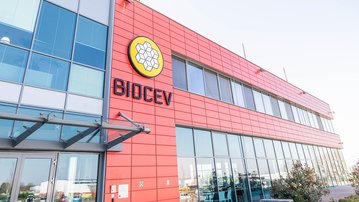About us
Ability to dynamically control the cell proliferation is crucial for homeostasis maintenance in multicellular organisms. There are three main cellular states, proliferative, quiescent and senescent, and each cell has to integrate different environmental cues in order to keep the homeostasis.
Disruption of this balance leads to pathological conditions such as cancer. However, even cancer cells have to be able to regulate the transition between proliferation and quiescence in order stimulate the metastatic spread or to survive environmental stress (such as low nutrients or therapy).
The research project aims to investigate the hypothesis that cell quiescence is actively maintained state, not a passive one that is caused by the lack of pro-proliferative signaling. Tumors maintain balance between proliferative and dormant cells and the ratio is altered in response to therapy or foreign site colonization. Moreover, recent evidence implies that individual quiescent cells have different reawakening potential implying the existence of subpopulations of quiescent cells, which may depend on the signals coming from their microenvironment.
The research will focus on two interconnected areas. First one would be mapping the molecules and signals that plays crucial role in communication between the quiescent and proliferative cells (cell to cell contacts, paracrine, autocrine signaling, ECM molecules). Second line of research would be characterization of signaling pathways governing the transition between proliferative and quiescent state. As a model, we will use clinically challenging, triple negative breast carcinoma (TNBC) cells because of their ability to remain quiescent for extended period of time and give rise to tumors years after eradication of primary tumor.
Methodologically, we will utilize CRISPR/Cas9 technology, 3D organoid cultivation, advanced MS-based proteomics, bulk and scRNA seq and samples from patients.






